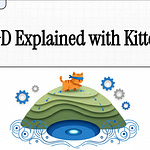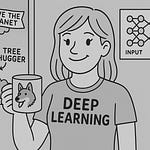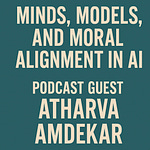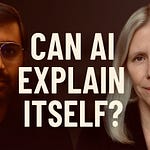Title: Mastering the Game of Go with Deep Neural Networks and Tree Search
Authors: David Silver, Aja Huang, Christopher J. Maddison, Arthur Guez, Laurent Sifre, George van den Driessche, Julian Schrittwieser, Ioannis Antonoglou, Veda Panneershelvam, Marc Lanctot, Sander Dieleman, Dominik Grewe, John Nham, Nal Kalchbrenner, Ilya Sutskever, Timothy Lillicrap, Madeleine Leach, Koray Kavukcuoglu, Thore Graepel, Demis Hassabis
Published: Nature, 529 (2016), pp. 484-503
Year: 2016
🧩 What This Paper Is About
In 2016, DeepMind published “Mastering the Game of Go with Deep Neural Networks and Tree Search,” showing how AlphaGo became the first AI to defeat a human world champion at Go — a game with more possible board configurations than atoms in the universe.
AlphaGo wasn’t just powerful because of deep learning alone. It blended two key ideas:
A policy network (to suggest promising moves),
A value network (to estimate how good a board position was),
And supercharged both using Monte Carlo Tree Search (MCTS) to plan moves intelligently.
This hybrid approach opened the world’s eyes to what was possible when machine learning models could reason and plan — not just react.
🛠️ Why It Matters
Before AlphaGo, Go was considered a “holy grail” problem in AI — far too vast and intuitive for brute-force search to handle.
AlphaGo’s victory:
Proved that deep reinforcement learning could tackle extremely complex, open-ended problems.
Catalyzed global investment in AI research and deep learning.
Inspired breakthroughs beyond games — from drug discovery to robotics planning.
In short: AlphaGo made the world take AI seriously in a whole new way.
📚 Key Concepts in the Paper
Supervised Learning: AlphaGo first trained by imitating millions of human expert moves.
Reinforcement Learning: It then improved through self-play — playing against itself thousands of times.
Policy Network: Suggested the most promising moves.
Value Network: Estimated the probability of winning from a given position.
Monte Carlo Tree Search (MCTS): Balanced exploration (trying new moves) and exploitation (following the best-known path).
Together, these ideas made AlphaGo far more strategic than previous Go-playing programs.
Read the original paper at Google Research.
🎧 Podcast Note
Today’s podcast episode was produced with the Audio Overview tool in Google NotebookLM.
The two AI hosts do a good job explaining the fusion of learning and search that powered AlphaGo, but occasionally they get a bit excited — like commentators watching a live match. (It’s fitting, honestly.)
Like AlphaGo itself, these AI podcasters are impressive — and a little unpredictable.
🌟 Recommended Watch:
If you have time, the documentary “AlphaGo” (available on YouTube and other platforms) beautifully captures the drama of AlphaGo’s historic matches against Lee Sedol.
It’s a fantastic companion to today’s paper — and reminds you that these breakthroughs have deeply human stories behind them.
#AI #DeepLearning #ReinforcementLearning #AlphaGo #TheWolfReadsAI














